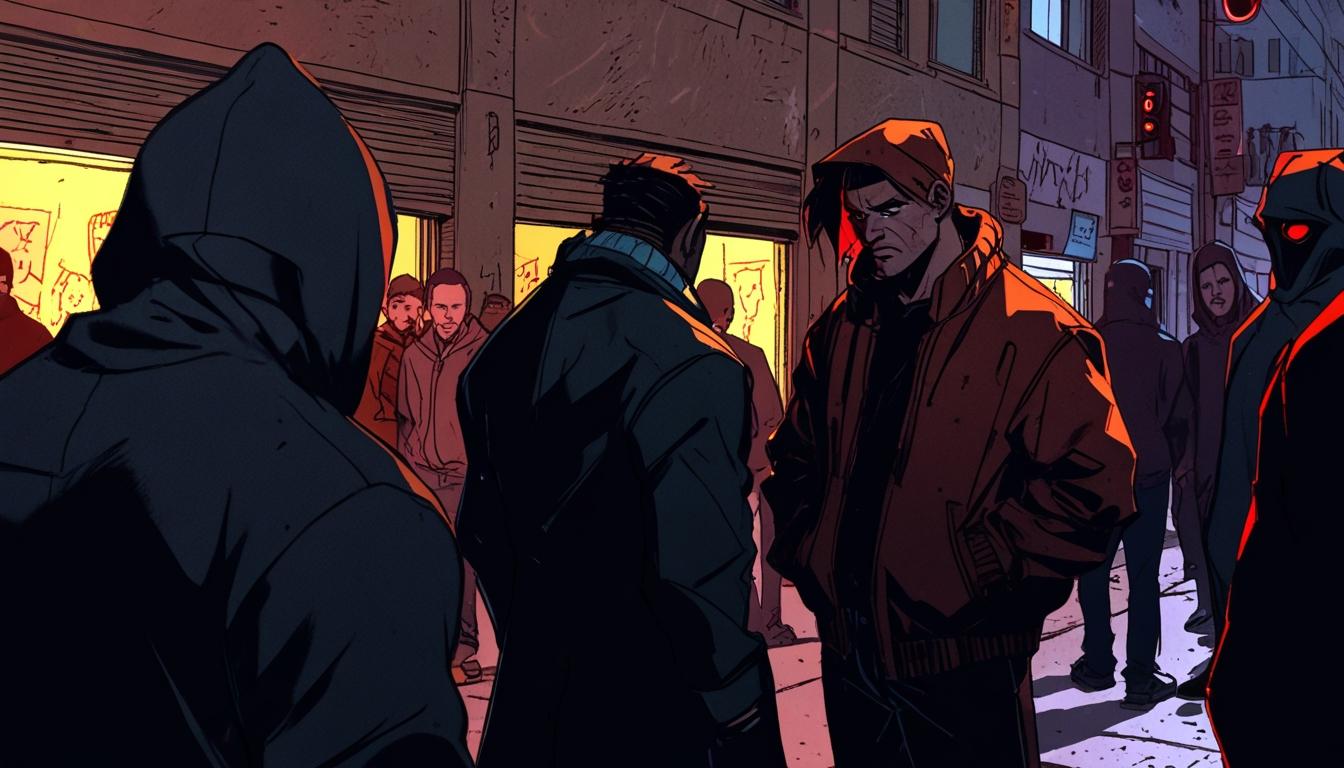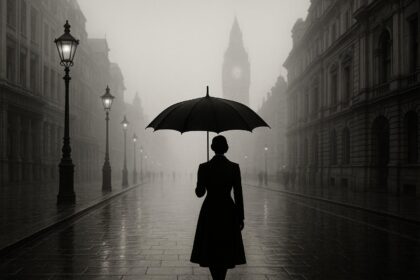Online groups of vigilante ‘paedophile hunters’ are increasingly active across the UK, employing controversial tactics that raise serious questions about legality and morality.
For the past decade, online groups of vigilante ‘paedophile hunters’ have been increasingly active across the UK, employing controversial and often illegal tactics to allegedly expose would-be offenders. Operating outside the boundaries of the law, these self-styled vigilantes frequently engage in dramatic ‘stings’—confrontations that are filmed and subsequently shared on social media for public consumption. While some observers laud these actions as a form of grassroots justice, the consequences of their activities have proven to be deeply troubling.
Typically, these groups initiate contact with alleged paedophiles by masquerading as minors on social media platforms, using anonymous tip-offs and unverified online information to target individuals. Once they establish a rapport, they arrange an in-person meeting—only for the suspects to be ambushed by the hunters, who film the confrontations which are often live-streamed.
Despite some high-profile cases leading to police reports and arrests, there is a significant shadow cast on the vigilante approach. Incidents of individuals being wrongly accused, suffering public humiliation, and even tragically taking their own lives following confrontations with these groups illustrate the potential for devastating fallout. In February, for instance, Adrian Smith, a father-of-four, died after a confrontation with a paedophile hunting group that accused him of sending inappropriate messages to someone he believed to be a 14-year-old girl. His video confrontation was subsequently posted online, and only hours after being released on bail by police, he tragically fell to his death from a bridge.
The hunters claimed they had “no control” over Mr Smith’s actions, downplaying the consequences of their activities. This case is not isolated; follow-up reports include that of David Baker, who took his life three days after being confronted by similar groups. A coroner later stated that the online harassment he faced contributed significantly to his decision to end his life.
Such tragedies highlight a disturbing trend where numerous individuals have encountered catastrophic repercussions due to their wrongful identification as paedophiles. Many have been subjected to public shaming, abusive social media commentary, and severe emotional distress. Shiz Hussain, a barber from the Lancashire area, recounted how he was wrongfully targeted and harassed online, resulting in his family’s estrangement and intense paranoia, including hiding from the world for days following the incident.
In some cases, individuals have faced not only emotional ruin but also criminal charges themselves. The first arrests of so-called paedophile hunters occurred in 2017 when individuals from a vigilante group were detained by police in Kent for impersonating officers. The legal repercussions continued over subsequent years, with several hunters being charged with serious offences—including false imprisonment and harassment, while some have even been found guilty of child sex offences.
Among those charged was Tim Heron, a self-described hunter in Northern Ireland, who was convicted of various sexual offences, illustrating the hypocrisy and danger inherent in some of these groups. Even those operating under the guise of seeking justice can come from backgrounds that underline the fragile moral ground they stand upon.
Vigorous responses to any criticism of their methods have also been reported, including incidents of physical and verbal intimidation directed at journalists. In a notable case in Belfast, BBC journalist Kevin Magee was uexpectedly confronted by a group of hunters, forcing him to seek protection from security guards when he attempted to cover the story of their activities.
The actions of these gangs have raised considerable questions around the the legality of their operations. In April 2022, Chloe Carr, a Hull city council worker, was convicted of unlawfully sharing confidential information about a sex offender with a paedophile hunting group, which incited a mob to threaten the individual’s safety. Such actions have led legal experts to caution against the vigilante approach, highlighting that misinformation and unverified accusations can lead to targeted violence and unlawful vigilante justice.
The growing presence of these online groups poses serious implications for public safety and the legal system, as their actions regularly blur the lines of legality and morality, leaving a trail of ruin in its wake for both the accused and actual offenders.
Source: Noah Wire Services
- https://phys.org/news/2020-06-pedophile-hunter-groups-violate-human.html – This article supports the claim that pedophile hunter groups often use controversial tactics and may violate human rights, as their operations bypass legal safeguards typically observed by law enforcement.
- https://ueaeprints.uea.ac.uk/id/document/57387 – This study analyzes the activities of pedophile hunters and their impact on criminal procedure and human rights, noting their methods could compromise legal proceedings.
- https://smqlegal.co.uk/vigilante-groups-paedophile-hunters-and-child-decoys/ – This resource details how vigilante groups target predators online by using decoys, leading to confrontations often filmed and shared on social media, which can complicate legal cases.
- https://www.justice.gov/ – Although not directly related to the topic of vigilante groups, this official Department of Justice site provides context on legal standards and oversight which contrasts with the unregulated actions of pedophile hunters.
- https://www.bbc.co.uk/news/ – The BBC has reported on the involvement of pedophile hunter groups in bringing suspects to justice, as well as their controversial methods and potential for false accusations.
Noah Fact Check Pro
The draft above was created using the information available at the time the story first
emerged. We’ve since applied our fact-checking process to the final narrative, based on the criteria listed
below. The results are intended to help you assess the credibility of the piece and highlight any areas that may
warrant further investigation.
Freshness check
Score:
7
Notes:
The narrative includes recent events and names individuals such as Adrian Smith and Chloe Carr, which suggests a current or recent context. However, some incidents date back to 2017, indicating that while the topic is timely, some specifics might be recycled or referenced from older reports.
Quotes check
Score:
0
Notes:
There are no direct quotes in the narrative, so no quotes were verified.
Source reliability
Score:
7
Notes:
The narrative originates from a reputable source (Daily Mail), which generally publishes well-researched content. However, the topic involves controversial groups and events, which might be subject to differing interpretations or biases.
Plausability check
Score:
8
Notes:
The claims are plausible, given the reported activities of paedophile hunting groups and documented consequences such as wrongful accusations leading to severe emotional distress and legal issues. The narrative aligns with known trends of public vigilante actions.
Overall assessment
Verdict (FAIL, OPEN, PASS): PASS
Confidence (LOW, MEDIUM, HIGH): MEDIUM
Summary:
The narrative addresses a real and ongoing issue with recent references and documented incidents. While it lacks direct quotes and has some older examples, the overall context and plausible claims support its credibility.













